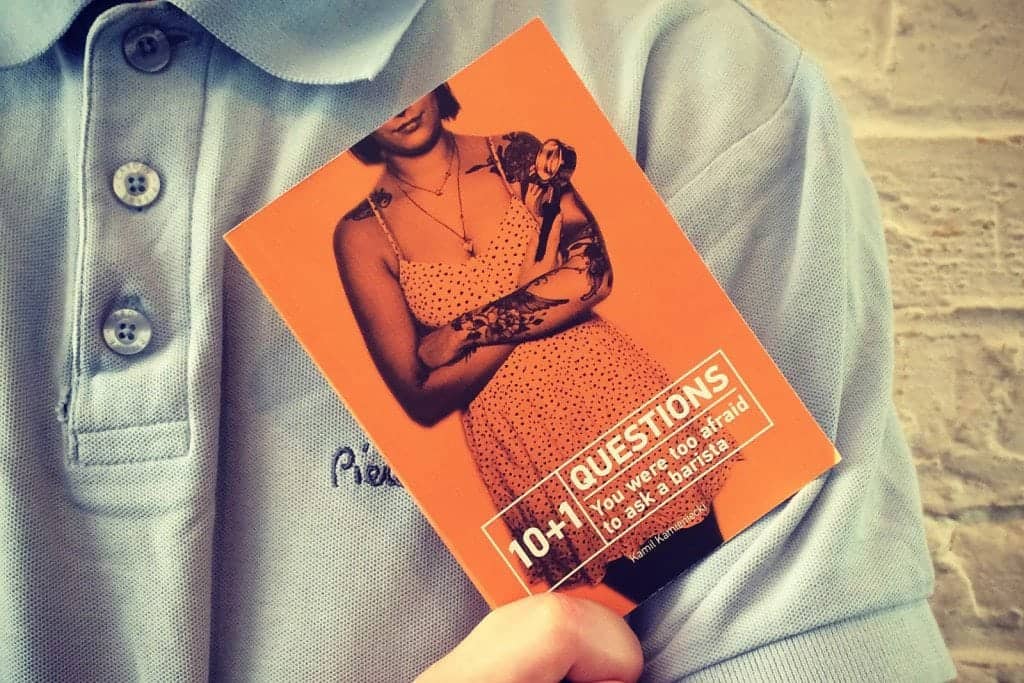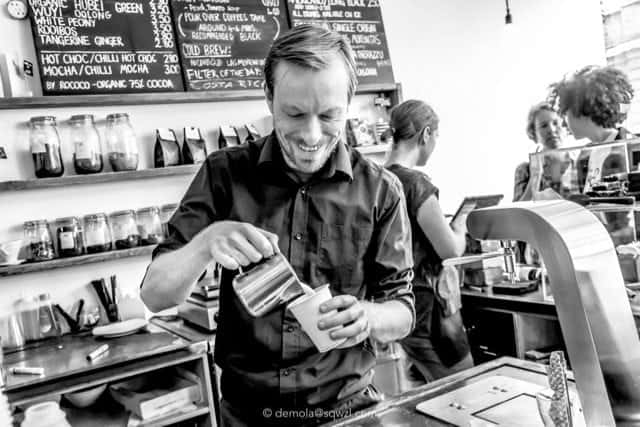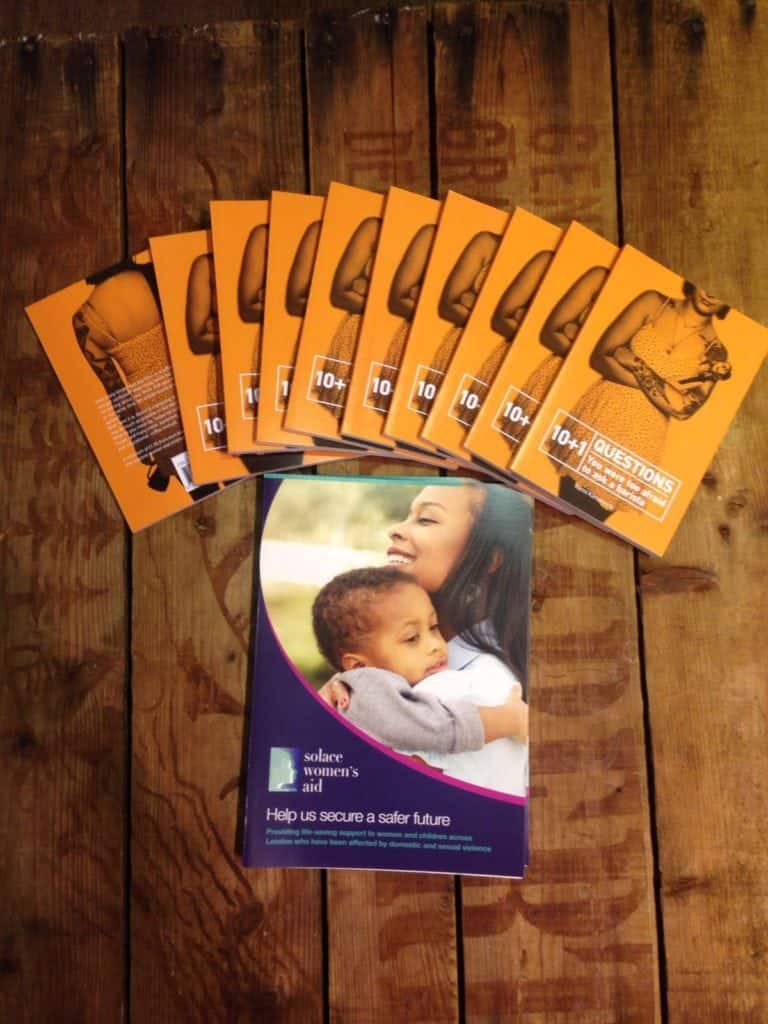Specialty coffee industry is a fascinating one! More often than not do we find people from various backgrounds working in cafes, simply because they fell in love with coffee. For those working in the specialty coffee sector it is natural to ask questions, dig deeper to reach a higher state of coffee knowledge every time, and to pay respect to the product they are selling, serving, enjoying!

What about the consumer though, the one that we are doing this all for? Is the consumer happy to ask all those questions? Should he ask those questions? Why is an espresso “stronger” than a cappuccino? Can I get addicted to coffee? What is a refractometer? What do you mean by single origin espresso? Do those questions sound familiar to you?
Barista answers your questions
Kamil Kamieniecki, Head Barista at CoffeeWorks Project in London, UK, decided to take the heavy stone of the customers’ chest by answering those questions, without doing it in the geekiest way. The result is a nice little pocket book, answering what might seem unimportant at a time, but explains in an easy way why baristas get so obsessed with every step of the process of making you your morning first-aid cup!

Read the following excerpt from the book and buy it online, or in one of the London stores supporting the cause. Kamil linked the book’s release with a London based charity, Solace Women’s Aid, supporting women and children who suffered from violence and sexual abuse. A contribution from every book sold goes to the charity! That way, you can educate yourself, as well as help those who need it very much!

Is caffeine a drug?
Yes, caffeine is classified as a drug. However, the chances of seeing you outside a tube station shaking and asking for coins because you are deprived of it, are quite low. Or, non-existent. Our brain has these tiny receptors that rise up every morning and wait for a chemical to go and sit on them named adenosine. Adenosine is responsible for making us sleepy and tired and builds up during the day.
Now, we have got this sneaky bugger called caffeine who happens to have the same shape as adenosine and once we have had this lovely cup of coffee, caffeine goes quickly and sits on the adenosine receptors and blocks its path. What our bodies have learnt to do though, is adapt, which means that our brain will grow more receptors each time, so that adenosine can have a spot to rest. Then you will decide to have more coffee because that one cup did nothing to you. And then you will get even more receptors growing, and even more adenosine, but you will fight it with even more caffeine, and . . . oh well . . . the war never ends.
We always suggest people not to overdo it with coffee consumption simply because it might cancel its effects since your body will get used to it and because big quantities can give you headaches, irritability, heart palpitations or less worrying symptoms like simple dehydration. Caffeine has the opposite effect on the body and brain to something called melatonin, which is regarded as having relaxing effects. If for any reason you have had too much coffee and need to sleep, you visit your local drugstore and get a melatonin pill. Melatonin is found naturally in carrots or even purslanes. Now, just to make things clear –and avoid lawsuits– I do not recommend that you start taking pills because simply you have had too much coffee. Or, even start eating carrots in coffee shops.
The first thing to avoid doing –after a big caffeine intake– is to avoid anything with sugar (even fruits) and drink plenty of water or some warmed up milk to help you relax. If you notice regular heart palpitations or uncomfortable body reactions to coffee please visit a doctor.
Another regular question us coffee geeks get, is why does a cappuccino provide a consumer with less of a kick than an espresso, even though they are both made from exactly the same amount of coffee? And the answer lies in the milk of the cappuccino. You see, milk, triggers the production of an amino acid in our body called Tryptophan, which has relaxing effects on our body (remember drinking warm milk before going to bed when you were a kid?), and when consumed with coffee, balances the effects of that ‘kick’. Not that it decreases the effect of caffeine, it just stabilises our reactions simply because we consume two products with a contrasting effect.
If you enjoyed reading one of Kamil’s answers, and would like to learn more, please do buy the book and support the good cause. More information to be found on our Facebook page!

